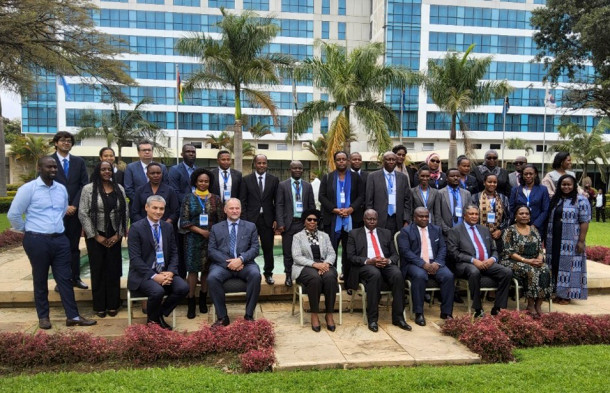News
Judges from East African Court of Justice and Tanzania attend training on freedom of expression

UNESCO organized a training with 20 judges from the Judicial Administration of Tanzania and the East African Court of Justice in Arusha, Tanzania, from 19 to 23 September 2022. The five-day training aimed to share knowledge on international and regional standards on freedom of expression, access to information and safety of journalists and how these norms can be used by regional and national courts.
The training looked at international standards applied to issues such as the legitimate limits to freedom of expression, decriminalization of defamation, hate speech, internet regulation, as well as the legal challenges related to artificial intelligence. In this regard, the training included a one-day session on artificial intelligence to help judiciaries adapt to the digital age, which followed UNESCO’s recently launched MOOC on Upholding the Rule of Law in the Age of Artificial Intelligence. High-level judicial actors and representatives inaugurated the training.
In her opening remarks, the President of the African Court on Human and Peoples’ Rights highlighted the need to further strengthen the protection of freedom of expression, in order to ensure the fulfilment of fundamental human rights:
The course was organized in response to contemporary challenges that judiciaries are facing around the world and presented key decisions of the Human Rights Committee and from African Courts on freedom of expression and press freedom. During the workshop, participants were also presented with resource materials including UNESCO’s Global Toolkit for Judicial Actors and Legal Standards on Freedom of Expression: Toolkit for the Judiciary in Africa, to help contextualize their learning experiences.
The session on artificial intelligence presented the benefits and risks of AI for the administration of justice and key decisions taken by courts on the application of AI in daily life.
The training in Arusha also offered the opportunity for UNESCO to organize a retreat at the headquarters of the East African Court of Justice to meet with its judges, and to present UNESCO’s work in training judicial actors on issues related to freedom of expression. This retreat followed the signature of a Memorandum of Understanding between UNESCO and the EACJ in December 2021, and was an occasion to discuss the next steps in this cooperation.
The training follows a regional training-of-trainers workshops that took place in Nairobi, Kenya, in November 2021, and falls within the wider framework of UNESCO’s Judges’ Initiative. Since 2013, this initiative has raised the capacities of judicial actors on international and regional standards on freedom of expression, access to information and the safety of journalists in over 150 countries around the world. Over 24,000 judicial actors, including judges, prosecutors, and lawyers, have been trained on these issues, notably through a series of Massive Open Online Courses (MOOCs), on-the-ground training and workshops for Supreme Court judges, and the publications of a number of toolkits and guidelines.
This training was organized with the support from the Ministry of Foreign Affairs of Japan, the Ministry of Foreign Affairs of Denmark, and Open Society Foundations.






